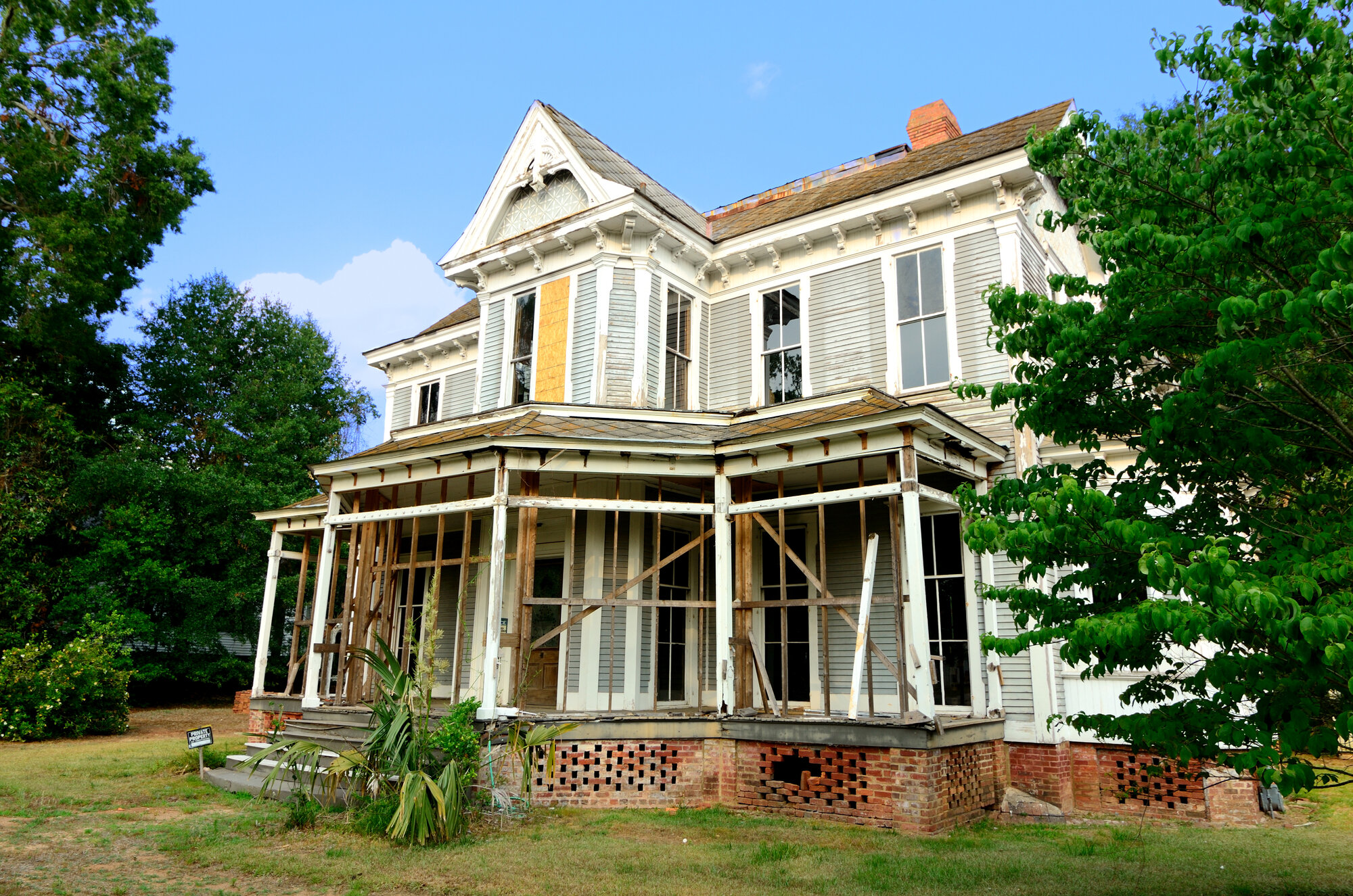The emotional weight of losing a loved one is heavy enough. Now, you’re also facing the complex, often stressful, process of inheriting their Houston property.
Suddenly, you’re juggling a dozen new questions:
- How do we navigate the Harris County (or Fort Bend/Montgomery) probate court?
- What if there’s no will?
- Who is responsible for the mortgage, taxes, and HOA fees?
- What do we do with a house that needs significant repairs or is full of personal belongings?
It’s overwhelming. Many families feel stuck, fearing a long, expensive process.
This guide is here to give you clear, actionable steps. We’ll walk you through the entire Texas probate and sales process, explain your options, and help you understand the fastest, most effective way to handle an inherited property in Houston.
How To Sell An Inherited Property in Houston, TX
Before you can sell the property, you must have the legal authority to do so. In Texas, this authority is granted through probate.
Probate is the formal court process that officially validates a will (if one exists) and appoints someone to manage the estate. Think of it as the legal “pause button” that ensures all debts are settled and all assets are distributed correctly.
You cannot just sell a loved one’s house, even if you are the only heir. The title must be legally transferred from the estate to you (or sold by the estate). This process, typically handled in the county where your loved one resided (like the Harris County Probate Court), is the first and most significant hurdle.

Who Is in Charge? The Executor vs. The Administrator
Your ability to sell the house hinges on one key person.
- If there IS a will: The will names an Executor. This is the person your loved one trusted to pay the estate’s bills and distribute their assets. Once the court validates the will, this person has the full legal authority to sign a sales contract.
- If there is NO will (Intestate): The process is more complex. The court must appoint an Administrator to manage the estate. This may be the surviving spouse, the next of kin, or even a third-party attorney if the family cannot agree.
The Houston Problem: This step is where many families get stuck. Disagreements between heirs or a complicated financial situation can drag out the court process for months, or even years. All while the house sits empty, accumulating taxes, insurance costs, and maintenance bills.

Building Your Team: The Probate Attorney and Your Sales Strategy
When you’re handling an inherited property, you’ll work with two main partners: one for the legal process and one for the sales process.
1. The Legal Partner: Your Probate Attorney
Probate in Texas is a complex legal process. Your first and most important call should be to an experienced Houston-area probate attorney. They are an essential guide who will:
- File the necessary paperwork with the Harris County (or other) court.
- Help validate the will or navigate the process if there is no will.
- Ensure all debts and creditors are handled correctly.
- Get you the official “Letters Testamentary” or “Letters of Administration” that give you the legal authority to sell the house.
2. The Sales Partner: Deciding Your Path
Once the court gives you the legal right to sell, you have a critical choice to make. How you sell the property will drastically impact your timeline, expenses, and stress level.
- The Traditional Path: Hiring a Real Estate Agent This is the route most people think of. You hire an agent who will list the home on the MLS. However, their goal is to get “top dollar,” which usually requires you to spend significant time and money upfront. You will likely be responsible for cleaning out the entire home, making repairs, paying for updates, and staging the property. You’ll also have to deal with showings, inspections, and then wait 30-60 days for a buyer’s loan to be approved—all while paying agent commissions (typically 6%) at the end.
- The Direct Path: Selling As-Is for Cash This is the simpler, faster alternative. You can sell the property directly to a professional cash home buyer (like TX Cash Home Buyers). With this path:
- You make ZERO repairs. We buy the house completely “as-is.”
- You pay ZERO commissions. We are the buyer, not an agent.
- You skip the cleanout. Take what you want and leave the rest.
- You close on your schedule. We use our own cash, so we can close in as little as 10-21 days after the probate is clear.
We can work directly with your probate attorney to handle all the title work and paperwork, making the sale the easiest part of this entire process for you.

Settling the Estate’s Debts
Here is a critical fact about inheritance in Texas: Debts are paid before heirs.
The Executor or Administrator is legally required to use the estate’s assets to pay off all valid debts before any money or property can be distributed to the family.
For a Houston property, these debts often include:
- The remaining mortgage
- Property tax arrears
- HOA liens or dues
- Utility bills
- Contractor or mechanic’s liens from old repairs
- Medicaid Estate Recovery Program (MERP) liens
If the estate doesn’t have enough cash to cover these debts, the house must be sold to pay them. This is a situation where a fast, certain cash sale becomes invaluable. It allows you to settle the debts immediately, satisfy the court, and prevent the bank from foreclosing.

The “Three R’s” Problem: Repairs, Renovations, and Removing Belongings
Once the legal authority is clear, you face the physical reality of the house itself. Inherited homes are rarely “market ready.”
You are likely facing one of these challenges:
- Repairs: The house is dated or has been deferred on maintenance. It might need a new roof, an HVAC system, or foundation work (a common, costly Houston-area issue).
- Renovations: To get “top dollar” on the MLS, a real estate agent will want you to update the kitchen, bathrooms, and flooring. This means hiring contractors, managing a project, and spending tens of thousands of dollars before you even list it.
- Removing Belongings: The home is often filled with decades of personal possessions. You and your family must endure the painful, time-consuming process of sorting, donating, and hauling everything away.
This is the most exhausting part for most families. It’s a second job that costs money instead of paying you.
Contact Us today for your cash offer!
Contact us today and get a competitive cash offer for an inherited house, condo, or property. We buy homes in any condition, and we can also help with the convoluted process of selling a Houston house in probate!
Get an offer on your house today! Fill in the form to get started!
Do all heirs have to agree to sell the property?
This is one of the most common—and most difficult—questions families face. The answer is “it depends on the will and who has legal authority.”
If There is NO Will (Intestate): This is where it gets complicated. Without a will, all legal heirs (as determined by the court) often co-inherit the property as “tenants in common.” This means yes, all heirs will likely need to agree on the sale. If one person refuses to sell, they can stop the entire process, leaving the house in limbo while taxes and bills pile up.
If There IS a Will That Appoints an Executor: The Executor is the person legally in charge of the estate. In most Texas probate cases, the Executor has the sole authority to sign the paperwork and sell the property. They do not typically need to get a signature from every single heir. However, they have a “fiduciary duty” to act in the best interest of all heirs, which usually means getting a fair market price and distributing the proceeds as the will directs.
How to Settle a Disagreement
Disagreements between heirs are the single biggest cause of delay and expense in probate. When one heir wants to sell, another wants to rent it out, and a third wants to move in, it can feel impossible.
- Look to the Will First: The deceased’s wishes, as stated in the will, are the ultimate authority. An Executor’s job is to follow those wishes, not the opinions of the heirs.
- Hire a Mediator: If there is no will or the will is unclear, the next step is mediation. This involves hiring a neutral third party to help the family find a solution. It is far less expensive and faster than taking the fight to a probate judge.
- Consider a Simple Sale: Often, the house itself is the problem. A traditional “retail” sale, with its months of repairs and listings, creates even more things to disagree about (e.g., “What color should we paint the kitchen?”).
A fast, as-is cash sale is often the simplest solution. It liquidates the asset quickly, bypasses all arguments about repairs, and turns a physical “problem” into cash. The money can then be easily and fairly divided according to the will or the court’s order, settling the dispute for good.
Best Practices: When the Executor is Part of the Problem
What if the person named as Executor is the one causing the strife? This is a painful and common situation. A sibling or relative may feel they are acting fairly, while others see them as biased or controlling.
If this is your situation, the best practice is to remove the family member from the financial decision.
The person named as Executor can decline the appointment. The family can then petition the court to appoint an “Independent Administrator.” This is a neutral third-party professional, often an estate attorney, who will step in to manage the estate.
This person has no emotional attachment to the property. Their only job is to follow the law, pay the debts, and liquidate the assets (like the house) in the most efficient way possible. This separates the difficult business decisions from the emotional grieving process and can be the single best way to preserve family relationships.
How Are Inherited Homes Taxed in Texas? (The Good News for Houston Heirs)
When you inherit a property, the tax implications can be intimidating. But for heirs in Houston and all of Texas, the news is overwhelmingly positive. Our state is one of the most tax-friendly in the country for inherited property.
Let’s clarify the three main types of taxes you might hear about.
(Disclaimer: We are real estate experts, not tax advisors. This information is for educational purposes. We always recommend you consult with a qualified Houston-area CPA or tax professional about your specific financial situation.)
1. Texas Has NO Inheritance Tax
This is the simplest and best news. An inheritance tax is a tax paid by the person receiving the inheritance. Only six states in the entire country have this tax.
Texas is NOT one of them. You will not pay a state inheritance tax on any property you inherit in Texas.
2. Texas Has NO State Estate Tax
An estate tax is different. It’s a tax paid by the deceased’s estate itself before any assets are passed to the heirs.
While a dozen states have their own estate tax, Texas does not.
There is a federal estate tax, but the exemption is extremely high. In 2024, the federal estate tax only applies to estates valued at over $13.61 million per person. For the vast majority of families in Houston, this is simply not a concern.
3. The One Tax to Know: Capital Gains Tax (And the “Stepped-Up Basis”)
This is the only tax that most heirs in Texas need to understand, and it’s where we have more good news.
A capital gains tax is a federal tax paid on the profit you make from selling an asset. Many people incorrectly assume they’ll have to pay tax on the profit from when their loved one first bought the house.
This is not true.
When you inherit a home, you benefit from a powerful rule called the “stepped-up basis.” This rule is the single most important tax concept for you to understand.
- What it means: The property’s cost “basis” (the starting value for calculating profit) is “stepped up” to its fair market value on the date of your loved one’s passing.
- You are not responsible for the appreciation in value that happened while your loved one owned it.
A Simple Houston Example:
- Let’s say your mother bought her Houston home in 1985 for $80,000.
- When she passed away this year, the home’s fair market value was determined to be $300,000.
- That $300,000 is your new “stepped-up basis.”
- If you sell the house for $305,000, you only pay capital gains tax on the $5,000 of profit you made, not the $225,000 of profit she made.
This is why many heirs choose to sell quickly. Selling the property for cash at a price close to its current market value often means you have little to no capital gains and can walk away with your inheritance without a complicated tax bill.
Documents Required to Sell an Inherited Property in Texas
To sell an inherited home, you must first prove to the title company and buyer that you have the legal authority to do so. This authority is granted by a Texas probate court, typically in the county where your loved one lived (like Harris, Fort Bend, or Montgomery county).
The single most important document you will need is:
- Letters Testamentary: If your loved one had a will, the court issues this document to the Executor, giving them the power to manage and sell the estate’s property.
- Letters of Administration: If there was no will, the court appoints an Administrator (usually a close relative) and issues this document, which grants the same power.
Once you have this legal authority, you’ll also need other standard documents to close the sale, such as a copy of the death certificate and the existing deed (if you can find it). A good title company can help you gather the rest.
Is There an Easier Way to Sell Your Inherited Houston Home?
Yes, there is. The process we’ve described—navigating probate court, settling debts, cleaning out a lifetime of belongings, and managing expensive repairs—is the traditional, difficult path. It can take months, or even years, and can be a source of constant stress and family conflict.
You do not have to go through that.
TX Cash Home Buyers is a local Houston-area home buying company that was founded to help families in this exact situation. We provide a simple, fast, and compassionate alternative.
- We Buy 100% “As-Is.” You make zero repairs. It doesn’t matter if the roof is leaking, the foundation has issues, or the home is full of old furniture. We will buy it in its current condition.
- You Skip the Cleanout. Take the items and memories you want to keep. You can leave everything else behind—the trash, the old clothes, the furniture. We will handle the entire cleanout for you, at no cost.
- We Pay Cash & Close Fast. We are not waiting for a bank loan. We use our own cash, which means we can close the sale the moment the probate court gives you authority—sometimes in as little as 7-10 days.
- We Pay All Closing Costs & NO Commissions. There are no 6% agent fees, no repair credits, and no hidden junk fees. The fair cash offer we give you is the amount you walk away with.
Even if the home has tax liens, a reverse mortgage, or is facing foreclosure, we can help. Let us make the sale of the property the easiest, most straightforward part of this difficult time.
Contact us today for your cash offer!
If you own a property that’s stuck in probate that you are ready to sell, call us at (281) 595-7550 day or night to get a competitive cash offer for that inherited home. We buy properties in any condition and no matter what the estate’s financial situation might be.
Get an offer on your house today! Fill in the form to get started!


